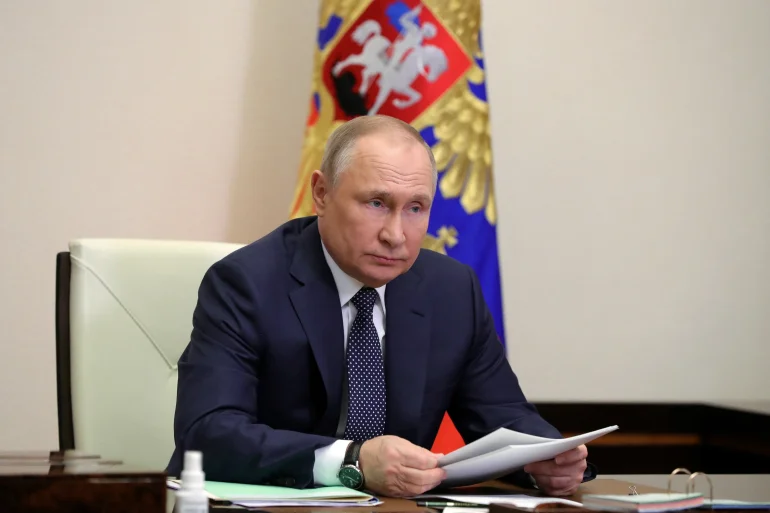Global Issues
Putin Goes for the Jugular: Insisted Gas must be Paid for in Russian Rubles from April 1st -By Olusoji Ajao
The Russian ruble is the second-oldest currency still in circulation, behind the British pound, 100 kopeks make one ruble. The Western Europe relies on Russian natural gas to heat homes, generate electricity and fuel industry and those imports have continued despite the war in Ukraine and sanctions imposed on Russia.

In an effort to strengthen Russian national currency, (ruble) which depreciated massively because of economic sanctions imposed on Russia after February 24, invasion of Ukraine, President Vladimir Putin on Thursday, March 30 2022, signed a decree that compulsorily mandated international buyers to pay in rubles for gas as from April 1, 2022.
Putin in a televised speech said among other things: “In order to purchase Russian natural gas, they must open ruble accounts in Russian banks. It is from these accounts that payments will be made for gas delivered starting from tomorrow. If such payments are not made, we will consider this a default on the part of buyers, with all the ensuing consequences. Nobody sells us anything for free, and we are not going to do charity either – that is, existing contracts will be stopped.”
The implication of the above is that countries would have to set up ruble reserves in order to buy Russian gas. This means the buyers would have to convert euros and dollars to rubles, before they could make payment for Russian oil and gas. Russia, has however, confirmed that it would abide by its obligations on all pre-existing contracts with buyers.
The Russian ruble is the second-oldest currency still in circulation, behind the British pound, 100 kopeks make one ruble. The Western Europe relies on Russian natural gas to heat homes, generate electricity and fuel industry and those imports have continued despite the war in Ukraine and sanctions imposed on Russia.
Most developed Western countries, at the start of the Russian-Ukraine war, have imposed sanctions on Russia. Consequently, the US, UK, Canada, Australia, Japan, Taiwan, South Korea, Switzerland, most of the 27 nations of the European Union, and a number of smaller countries have frozen Russia’s foreign currency reserves.
This latest Russia’s move could worsen the energy crisis in Europe and possibly lead to economic recession in Europe. As about a third of Europe’s gas is being sourced from Russia. Apparently, oil and gas are Putin’s most potent weapons of neutralising effects of multiple economic sanctions on his country.
Dollars, Euros, Oil and Gas Weaponization
Russia’s insistence on gas payment with rubles is practically weaponization of oil and gas supply on the one side, a reaction to Western countries who had weaponized dollars and euros. Though Putin said the move was intended to boost Russia’s self-reliance after Western countries blocked Russia’s access to its foreign reserves in dollars and euros. Putin’s action could send European economy into recession.
About 60% of gas imports from Russia are paid in euros, and the rest in dollars, with this new degree, payments would be made 100% in rubles. Countries are now forced to purchase rubles, as reserve currency to be used to pay the Russian Government. This would increase transaction cost as some Russian banks have been blocked from the SWIFT platform being used to facilitate huge international money transfers.
Though the G7 countries – the world’s most advanced economies: Japan, the U.S, Canada, Germany, France, Italy and Britain, have collectively rejected Putin’s new decree, what would happen next is foggy; as Russia isn’t likely to jettison its hardline position. The Western countries that depend on Russia’s oil and gas would be forced to look for alternative markets, possibly from Gulf countries and Africa.
Olusoji AJAO is a Lagos-based Global Affairs Analyst, for comments and questions kindly follow him on Twitter: @OlusojiAjao


















